I’ve been taking my return to running post-Covid VERY slowly. I tried to follow the recent guidelines in the British Medical Journal . I didn’t want to take any chances on an increased risk of myocarditis or potential Long Covid. This post isn’t about running after Covid in particular, there are still many unknowns there. This is more of a general blog about things to think about when you’re returning to running after any kind of break. Whether that’s injury, illness or just falling out of love with running.
Here are my six top tips for returning to running after a break:
1. Are you ready?
Whatever your reason for not running, it’s important to make sure you’re fit and well to run, both physically and mentally. Are you fully recovered from illness? If you’ve had Covid, then have a look at the guidelines I linked to above. They advise you need to have at least seven days without any symptoms at all before you do any kind of gentle every day pottering about. If you’ve had an injury then is it fully better? Most runners return too quickly after injury (the temptation is strong!). Get advice from a sports physiotherapist if you’re unsure. It’s far better to be patient and rest properly than return to running too soon, you just risk re-injury or prolonging injury.
If you’ve stopped running because your mood was low or you’ve been struggling with stress or anxiety then just make sure you’re running because you want to and not because you feel you should. While running can boost mood and ease anxiety, it can very easily become a pressure if you aren’t careful.
If it’s more of a loss of motivation or confidence then grab the fact that you’re thinking about it and just crack on – you’re ready. Over thinking just leads to procrastination and lack of action!
2. What’s going to motivate you?
You might be super motivated and ready to go but even the most enthusiastic of us find that feeling wanes, especially when what we’re doing is hard. Memories of how you used to run and looking at your parkrun and race PB times can make you feel pretty rubbish. Your former performance might be a million miles away from where you are now. You’re going to need something to help you get through this bit. Think back to when you were a beginner – it was tough. What motivated you then? What kept you going out? Was it a running buddy, a race goal, a running journal? Line up all the tricks, carrots and sticks that have helped you before. Changing your behaviour is hard so be prepared for some ups and downs and arm yourself with an array of motivational options.
3. Don’t start with running
I don’t just mean start with walking although of course that is good advice too. No, I mean that you need to ‘run-proof’ your body. This is particularly important if you’ve not run for a few months or more. Running is just putting one foot in front of another BUT it involves so many muscles in your body. A strong core is essential for good running technique, powerful glutes are needed for running power and the small muscles in your feet and ankles help you to balance and cope with twists and turns. You need to wake up all those muscles. You also need to wake up the nerves that activate them. You can fire up all those nerve and muscle pathways by doing some simple activities at home. Here are a few examples:
- Standing on one leg and then progressing to bending and straightening the knee while you do it
- Calf raises
- Squats
- Glute bridges
- Walking toe-heel along an imaginary line
- Walking in a small figure of eight
- Abdominal crunches
- Superwoman – on all fours and stretch out one arm and the opposite leg while trying to keep your core stable.
Feeling confident with these before you head back to running will put you in a really good place to make a successful return.
4. Take it slowly
An obvious one but we all need to hear it! It’s so tempting to pick up where you left off. It can feel really frustrating to be a beginner again but it won’t take long. You’ll get your fitness back pretty quickly. This is crucial after Covid and if you get any return of symptoms you should go back to resting. Lots of runners use the Couch to 5k app as a way to return gradually to running and this works really well.
Remember to have plenty of rest days to let your body adjust and repair itself. Avoid cranking up your miles too quickly or rapidly increasing the time you’re on your feet. It can feel frustrating but it will pay off in the long run.
5. Watch for niggles
If you’ve been off with injury and start to feel any niggle of recurrence, don’t just keep plodding on. Stop, rest again and think about why it’s recurring. You might consider seeing a physiotherapist to look for the root cause and personalised advice on returning to running. Think of yourself as a beginner again and remember all those issues than can affect you. Plantar fasciitis, Iliotibial Band Syndrome, runner’s knee and shin splints are all more common in people who crank up their intensity and miles too quickly, be alert for those.
Yes, you’ll undoubtedly get a few twinges and aches as your body readjusts to running but watch out for pains that persist when you stop running or recur each time you try. You can read my blog about how to tell the difference between a niggle and an injury.
6. Share your journey
I wanted to add in something about sharing your journey. It can be a good way to keep yourself motivated and accountable but it’s also a really powerful way to help other runners. When you’re injured it can be so miserable and seeing that there is hope can help. Your post might be exactly what someone else needs to hear. By returning to running in a safe and sensible way, you can also be a role model for others. Never underestimate the power you have to motivate, inspire and encourage others.
Good luck with your return to running journey. Do let me know how you get on. If you have any other tips that have helped you then do share them in the comments or on my social media.
And if you’re returning to running after Covid, please don’t rush. Get properly better first and then take it even more slowly than you think you should.
There’s more about running injuries and returning to fitness in my book Run Well: Essential health questions and answers for runners published by Bloomsbury and available from all good book sellers.
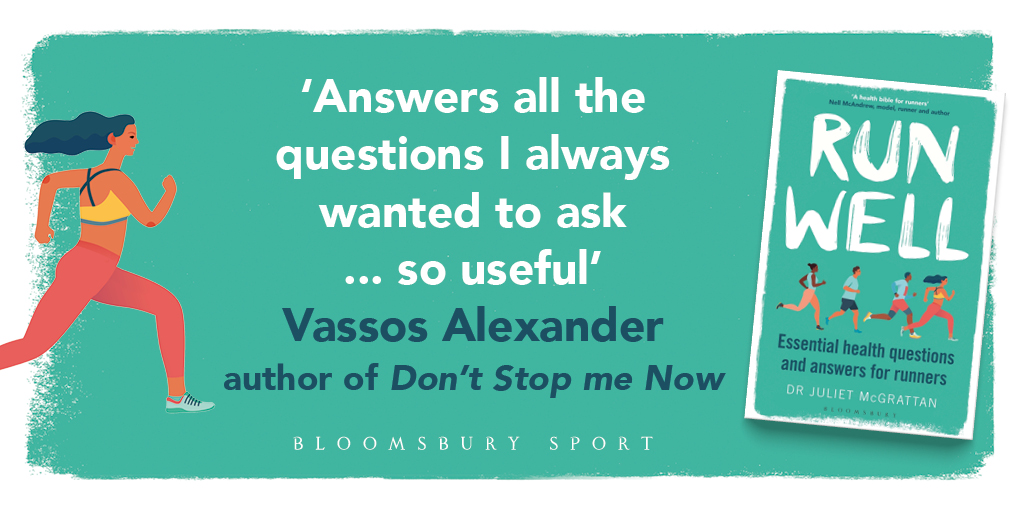

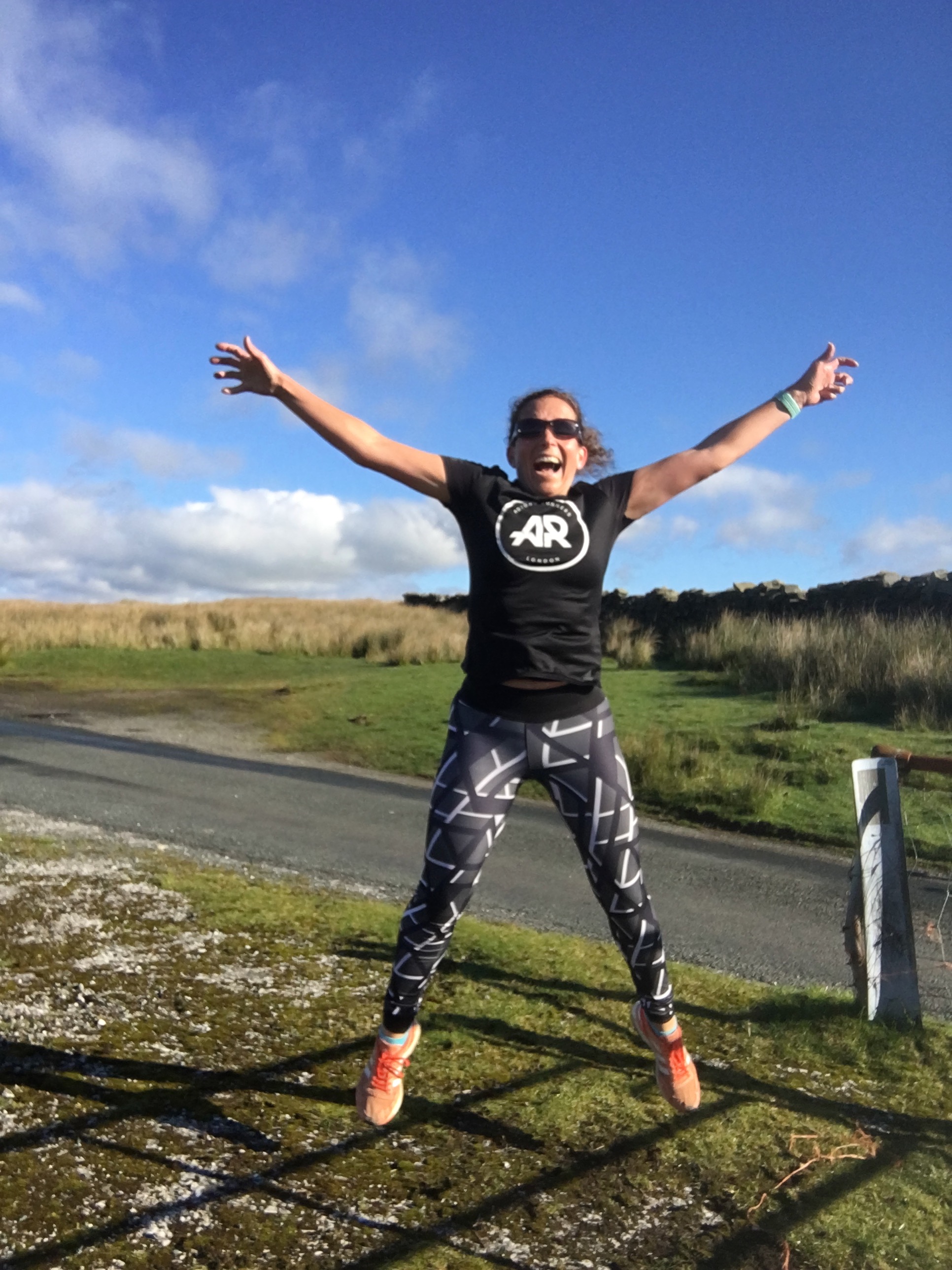

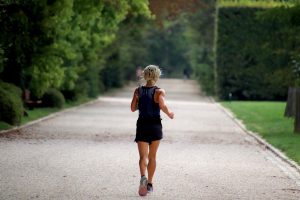

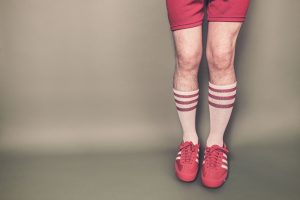
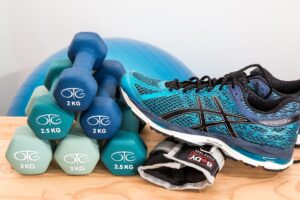

Great advice and I’ve spoken to club mates who are running after covid. The temptation to come back too soon is very strong.
It really is! We’re an impatient bunch!
Now I am the impatient one too but I am being sensible. Still testing positive, so just resting.